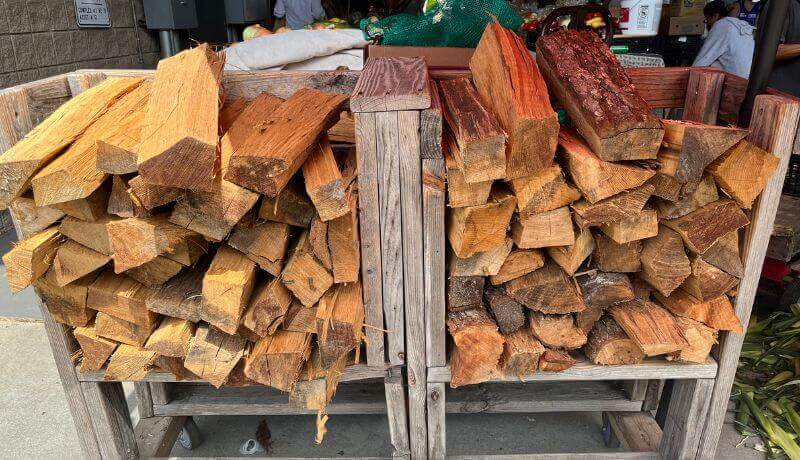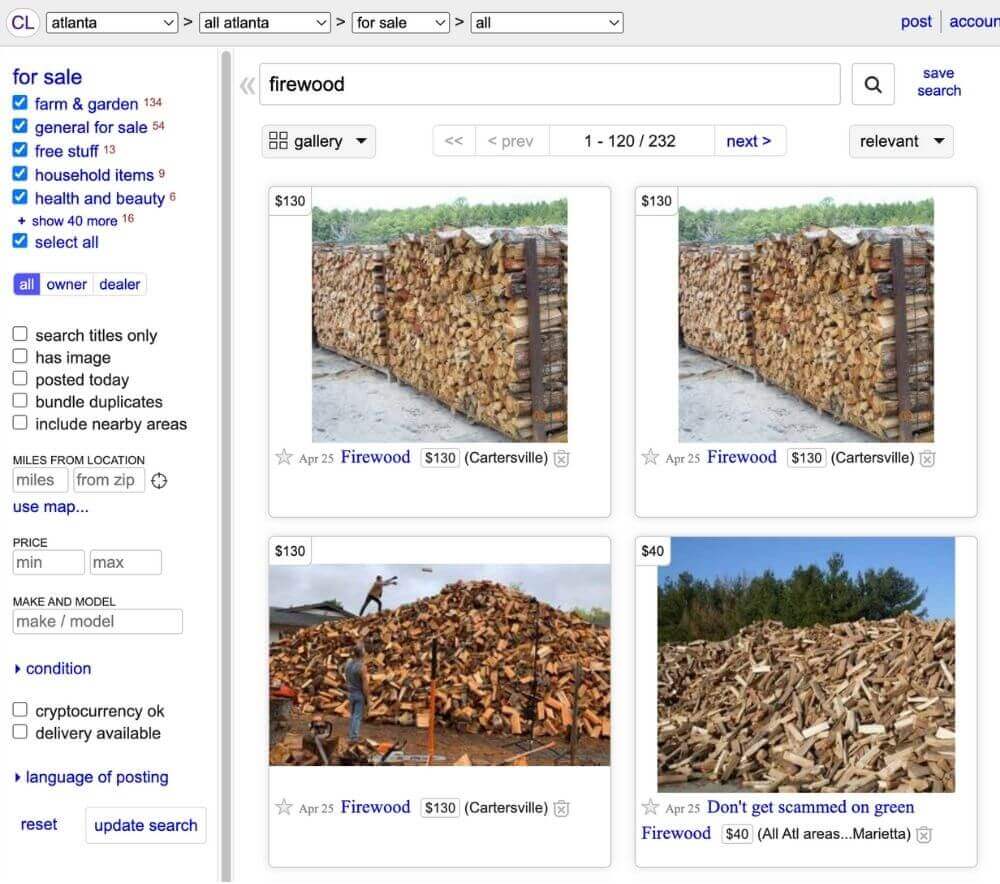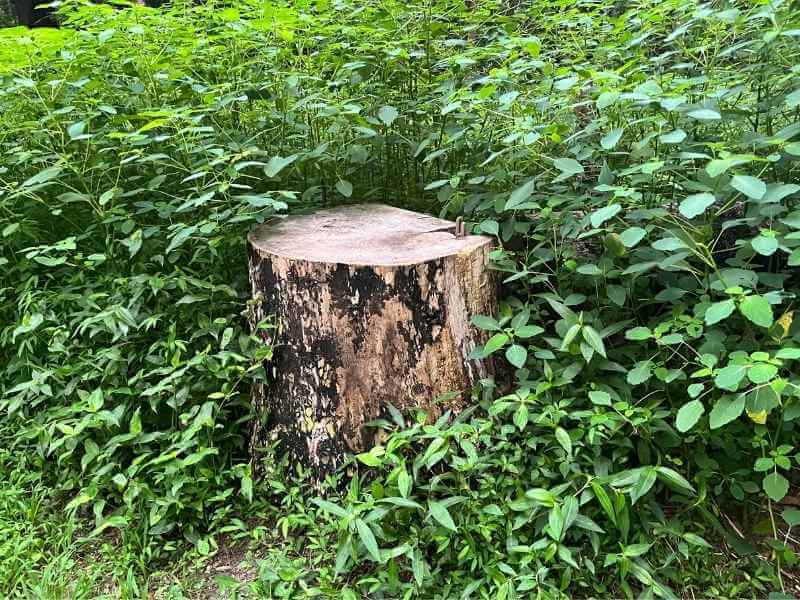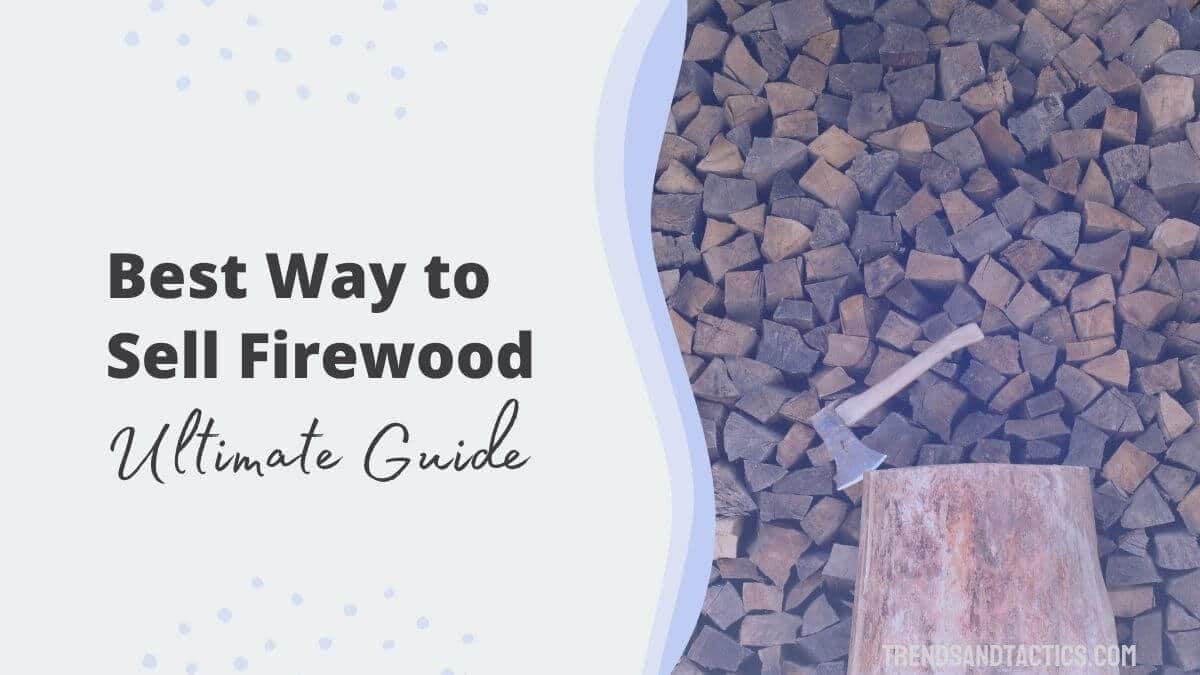If you want to know how to sell firewood, it’s not necessarily as simple as hauling a few logs to the side of the road and putting up a sign.
To make a decent profit, you need to understand the ins and outs of the business, including how to price your firewood appropriately.
Here are some tips on how to start a firewood business – the right way! – so you don’t lose your shirt in the process.
Should I start a firewood business?
If you’re considering starting a firewood business, there are a few questions you should ask yourself.
Consider the following factors:
- Weather – Is it cold where I live for at least part of the year, or three to six months? If not, there may be less of a demand for firewood than in areas that experience harsh winters.
- Location – Am I close to major tourist destinations, like campgrounds, nature areas, beaches, or beach communities?
- Demographic Trends – Are backyard fire pits popular where I live? What is the population density like? If it’s mostly apartments and areas without backyards, it might be harder to sell firewood.
- Available Time and Resources – Most importantly, do I have the time to start and operate a firewood business? What about other resources, like chainsaws and sheds to season the firewood? Is there another business you could start today with no money?
- Where can I sell firewood – Are you going to market your firewood online? By putting up flyers? Simply by word of mouth?
All of these factors are important ones to consider if you’re thinking of starting a firewood business.
Here are some pros and cons of starting a firewood business:
Trend on the Rise
Do you live in California, Texas, Illinois, New York, or Pennsylvania? If so, you’re in luck – these are the top states that come up in a search for “firewood near me” in a Google Search. You may have the best luck starting and marketing your new firewood business here!
Where to sell firewood?

Customers who buy firewood are likely used to purchasing it at a store. Many owners stock up in the early fall months and phase out that inventory in the midwinter.
If you can prepare your inventory early enough in the year, you might be able to get your firewood marketed by those stores. It takes a lot of legwork out of the equation!
Narrow your search for stores to sell to within local businesses only. Most big box stores, like Lowe’s, already have contracts in place.
You probably won’t be able to get your firewood on the shelves there. Small mom and pop hardware stores or grocery chains will likely appreciate the business though.
You can also sell firewood directly to the consumer. Sell on Facebook Marketplace, on Craigslist, or even by putting up flyers.
Here are some tips for selling on Craigslist and other sites to sell stuff.
Word of mouth is huge when it comes to getting and building firewood sales!
Tactic for Success
While you might be able to travel small distances with your firewood to get it to sell, keep in mind that many states have laws against moving firewood across state lines. The closer to home you can keep your sales, the better. Consider selling at a flea market to keep the firewood local.
What is the best firewood to sell?
You have a few different options when it comes to selling your firewood. Some people sell massive amounts of wood while others sell a few truckloads of firewood here and there to get extra vacation money.
On a larger scale, you’ll sell firewood by the cord. A cord generally measures 4’4’8’, for a total of 128 cubic feet. You can also sell bundled firewood.
What kind of firewood should you sell? It might sound obvious, but try to sell whatever kind of firewood you have easy access to! You may even consider contacting a recycling business that specializes in wood.
While there are certain types of firewood that are more in demand than others, you’ll need to cut trees that you legally have access to and can sell as your own.
That said, you should try to sell dense hardwood firewood. Hardwood is better firewood because it burns cleaner and does not lead to the fast build-up of creosote, as most softwood does.
It tends to burn hotter and for longer, producing less smoke than softwood.
You can sell mixed hardwood firewood, which is the best bet if you have a mixed stand of trees to cut.
Some of the best species of firewood you can sell are:
- Oak – White oak in particular is a good hardwood species to sell. It has a high heat value in which one cord is the equivalent of 200 to 250 gallons of fuel oil!
- American Beech – This is another hardwood with a high heat value and it’s usually pretty easy to find.
- White Birch – Although birch doesn’t produce quite as much heat as oak or beech (only about 150 to 200 gallons of fuel oil), it still has the potential to be quite marketable.
- Other Options – Other species to consider selling include yellow birch, red oak, mesquite, ironwood, apple, and shagbark hickory.
Trend on the Rise
You can make even more money by selling bundled firewood. Bundled firewood, rather than firewood sold by the truckload to people looking to heat their homes, is generally sold to local stores and campgrounds. You’ll be able to sell this kind of firewood for up to three times more money per unit volume.
How to Market Your Firewood

As discussed above, you don’t have to work with third-party resellers in order to sell firewood for money. There are lots of consumers who are happy to buy firewood directly from you, rather than from the store.
The challenge in marketing your firewood isn’t selling it but instead, just getting the word out to customers so they know you have it.
Tactic for Success
Use websites like Craigslist, Facebook Marketplace, or even Google My Businessto get the word out to potential customers about your firewood business. Make sure your terms and location are clear so it’s easy for customers to find you.
The Logistics of a Firewood Business
The next challenge you need to overcome is in finding firewood to sell. You’ll need to source firewood on a regular basis to make sure you have steady supply. If you own your own woodlot, that’s your best bet.
However, you may also be able to source your firewood from other places. Tree removal companies often sell large surpluses of wood that they need to offload.
Once you have your source of firewood lined up, make sure you have the right woodcutting tools and equipment.
You’ll need things like a gas-powered chainsaw, a heavy duty trailer, and perhaps a bucking or delimbing chainsaw, depending on the size and copy of your operation.
Risks of a Firewood Business

As is the case with any other type of business, a firewood business is not without its fair share of risks.
One of the biggest challenges of operating a firewood business is that you will need to sell firewood that is seasoned.
Seasoned firewood is a term that refers to wood that has been dried for a period of time (at least six to twelve months) so that any retained moisture can be removed.
All the species of wood dry at different rates, so you’ll want to do some research about the specific type of firewood you are selling and how long it will take for the wood to dry.
As you might expect, this requires some planning in advance and means you won’t be able to get your firewood to market immediately after cutting it.
You also need to avoid keeping your firewood outside for prolonged periods of time.
It needs to be kept dry, again, and you also need to make sure insects like termites and wood borers don’t get inside the wood and damage its quality.
Finally, setting prices can be a challenging aspect of running a firewood business.
Customers will almost always want to negotiate with you – and you run the risk of taking a loss if you allow them to negotiate the price down too low.
To get around this, come up with a rate sheet with your prices clearly listed. That will take away much of the wiggle room and make yourself appear more professional to potential buyers, too.
Wrapping Up
Whether you’re a seasoned pro (no pun intended!) in the firewood sales game or a total newbie, we hope these tips will help you increase your profits.
Give them a try and see how they work for you.
Rebekah is a writer who covers all things education, business, agriculture, and finance. She owns a small farm business in upstate New York. Her educational credentials include a bachelor's degree in English from St. Lawrence University and a master's in special education from SUNY Plattsburgh.






